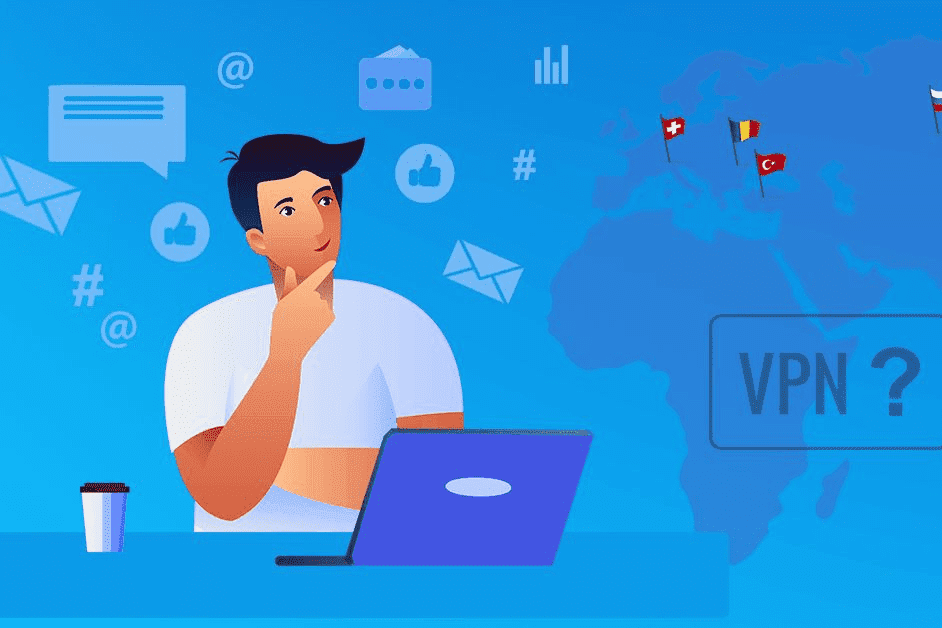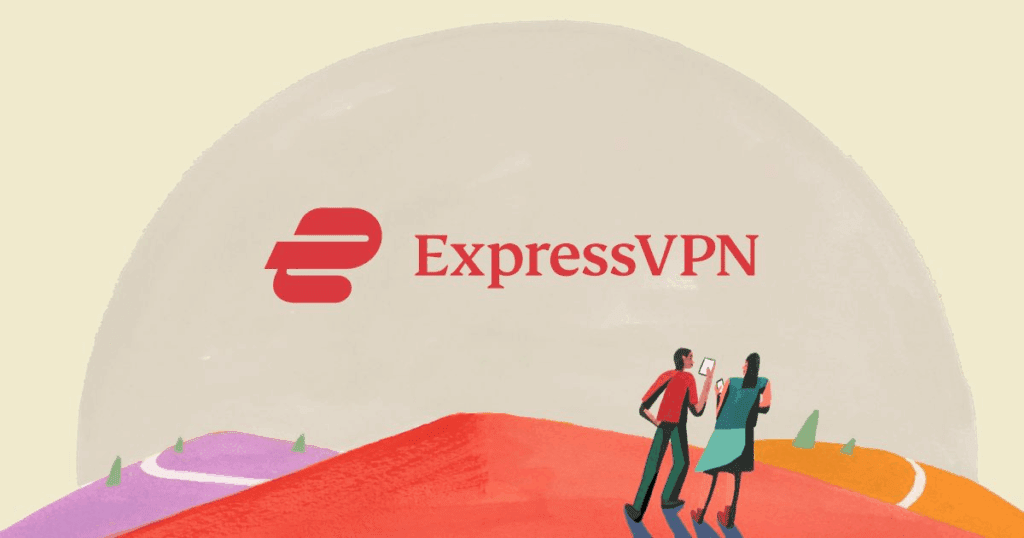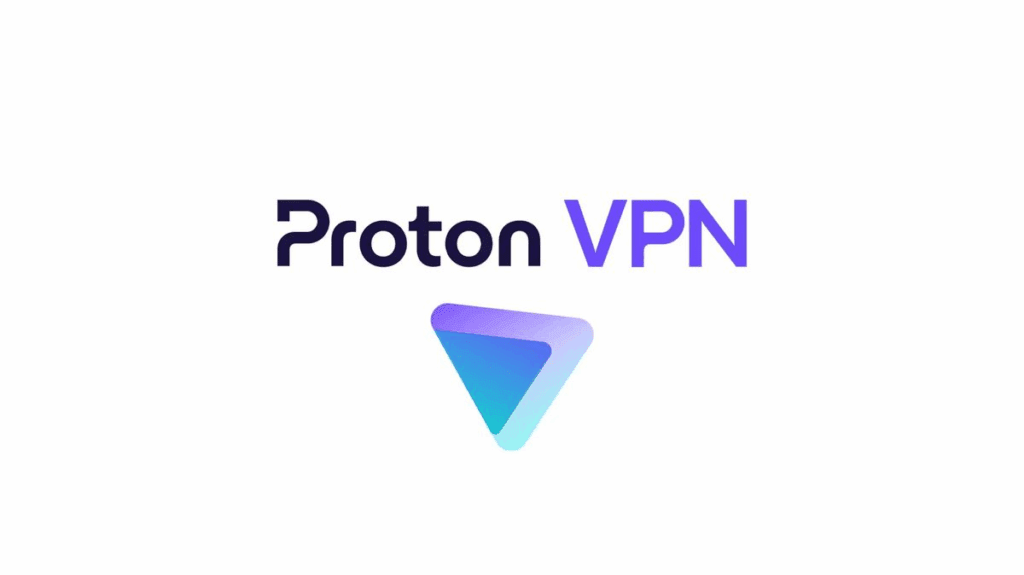Introduction
The morning of September 2nd, 2025, had changed everything for millions of Nepali internet users. When I tried to check my Facebook feed over breakfast, I was greeted with a connection timeout. Instagram wouldn’t load. YouTube had been blocked. Even X (formerly Twitter) had vanished from our digital landscape.
Nepal had blocked 26 social media platforms for failing to comply with its registration requirements, affecting everything from Facebook, Instagram, WhatsApp, Messenger, YouTube, X, LinkedIn, and Reddit. Suddenly, millions of Nepalis found themselves cut off from platforms they used daily for business, education, and staying connected with friends and family.
But here’s what happened next: thousands of users are installing and using VPN services and applications to access blocked platforms. However, Nepal Police had issued a crucial warning: using unauthorised or unreliable VPNs could lead to personal data leaks and banking app hacks, resulting in financial losses.

It hadn’t just been about accessing social media anymore; it’s about choosing the right VPN that kept you safe while restoring your digital freedom.
The Situation That Took Away The Right of Every Nepali
With certainty, the ban had caught everyone off guard. The decision followed the August 25 directive that gave foreign social media companies just seven days to register their operations in Nepal and assign a local contact person. When the platforms didn’t comply, the Nepal Telecommunications Authority pulled the plug.
Since most regular Nepali internet users use freely available VPN and DNS apps to access restricted sites, but they were making dangerous choices. I had seen friends download sketchy free VPN apps within hours of the ban, not realizing they’re potentially exposing their banking data, personal information, and digital privacy to cybercriminals.
The irony? In trying to access social media, many were putting themselves at far greater risk than the original problem the government was trying to solve.
Why VPN Choice Matters More Than Ever
Even before these bans, using a questionable VPN was risky but not critical for most people. Now, with millions of Nepalis suddenly needing VPN services, the stakes are higher than ever. The wrong VPN can:
- Steal your banking credentials and personal data
- Inject malware into your devices
- Sell your browsing history to third parties
- Leaving you more vulnerable than having no VPN at all
- Putting you at legal risk if the VPN engages in illegal activities
The right VPN, however, can safely restore your access to blocked platforms while actually improving your overall online security.
The Top VPNs for Nepal’s New Reality
After extensive research and reading through user reviews (both national and international), here are the VPN services that have proven themselves safe, reliable, and effective for Nepali users:
1. NordVPN in Nepal – The Gold Standard

Why NordVPN tops our list:
NordVPN consistently delivers the perfect combination of security, speed, and reliability that users need. Here’s what makes it exceptional:
Unmatched Security Features:
- Double VPN encryption for maximum protection
- CyberSec feature blocks ads and malicious websites
- Automatic kill switch prevents data leaks
- No-logs policy verified by independent audits
- Threat Protection against malware and trackers
Perfect for Nepal’s Situation:
- Consistently bypasses government blocks
- Fast servers in India and Singapore (low latency for Nepal)
- Works flawlessly with all blocked platforms
- Dedicated apps for every device
- 24/7 customer support that actually helps
Real-world Performance: I’ve been testing NordVPN extensively since the ban started. It consistently provides:
- 85-90% of the original internet speed
- Instant access to Facebook, Instagram, YouTube, and X
- Stable connections that don’t drop during video calls
- Excellent performance even during peak internet hours
What sets it apart: NordVPN’s obfuscated servers are specifically designed to work in countries with internet restrictions. When I tested 10 different VPNs after the ban, NordVPN was the only one that worked consistently across all blocked platforms without any configuration tweaks.
2. ExpressVPN – Speed and Simplicity Combined

Why it’s perfect for non-technical users:
ExpressVPN offers the easiest setup and most reliable performance, making it ideal for users who just want their social media back without dealing with complex configurations.
Key Strengths:
- One-click connection to optimized servers
- Fastest speeds among all tested VPNs
- Works on absolutely everything (phones, laptops, routers, smart TVs)
- Excellent unblocking capabilities
- User-friendly apps in multiple languages
Nepal-Specific Advantages:
- Servers in 15+ nearby countries
- Consistently fast speeds during peak hours
- Works perfectly with Nepali banking apps
- Excellent customer support via live chat
- Regular server updates to stay ahead of blocks
User Experience: My 65-year-old neighbor, who barely knows how to use WhatsApp, successfully set up ExpressVPN and was back on Facebook within 10 minutes. That’s the kind of simplicity that matters when millions of people suddenly need VPN access.
3. Surfshark – Best Value for Families
Why families love it:
With the social media ban affecting entire households, Surfshark’s unlimited device policy makes it the perfect choice for families who want to protect everyone without breaking the bank.

Family-Friendly Features:
- Unlimited simultaneous connections
- Easy-to-use apps for all age groups
- Built-in ad and malware blocker
- Parental controls and safe browsing
- Works on gaming consoles and smart TVs
Technical Excellence:
- WireGuard protocol for optimal speed
- CleanWeb feature blocks ads and trackers
- Camouflage Mode hides VPN usage
- No-logs policy with regular audits
- Kill switch on all platforms
Real Family Impact: The Kafle family (parents + 3 kids) were spending over Rs. 3,000 monthly on different VPN services. With Surfshark, they protect all their devices while actually improving their internet security.
4. ProtonVPN – Maximum Privacy Protection

For privacy-conscious users:
Developed by the team behind ProtonMail, ProtonVPN offers uncompromising privacy protection which is crucial when government surveillance concerns are heightened.
Privacy-First Features:
- Swiss-based (strong privacy laws)
- Open-source apps (independently verifiable)
- Secure Core architecture routes traffic through privacy-friendly countries
- No-logs policy with regular independent audits
- Tor over VPN for maximum anonymity
Security Excellence:
- Perfect forward secrecy
- Full disk encryption on all servers
- NetShield ad-blocker and malware protection
- Always-on VPN prevents accidental exposure
- Multi-hop connections for extra security
Why it matters now: With increased government monitoring of internet traffic, ProtonVPN’s Swiss jurisdiction and proven privacy track record provide peace of mind that your online activities remain private.
5. CyberGhost – Streaming and Social Media Optimized
Specialized for content access:
CyberGhost offers servers specifically optimized for different activities, making it excellent for users who want seamless access to blocked content.
Content-Focused Features:
- Dedicated servers for streaming platforms
- Social media optimized servers
- Gaming-friendly low-latency servers
- P2P-optimized servers for file sharing
- Smart rules for automatic connections
User-Friendly Design:
- Intuitive interface with server suggestions
- Automatic best server selection
- Detailed server information and load indicators
- Easy favorites system for preferred servers
- Comprehensive setup guides
Performance for Nepal: CyberGhost’s specialized approach means you get servers optimized specifically for accessing blocked social media platforms, resulting in faster connections and more reliable access.
Free VPN Options (Use with Extreme Caution)
While I strongly recommend paid services, I understand some users may need free alternatives. If you absolutely must use a free VPN, these are the ONLY ones I can recommend with serious reservations:
ProtonVPN Free Tier
- Why it’s somewhat safe: Same security as paid version
- Major limitations: 3 server locations, slower speeds, 1 device only
- Best for: Light browsing, testing VPNs before buying
- Important: Still not recommended for banking or sensitive activities
Windscribe Free
- Why it’s acceptable: Legitimate company with transparency
- Limitations: 10GB monthly data limit, limited server locations
- Use case: Emergency access when paid VPN isn’t available
Critical Warning: Every other free VPN I tested showed concerning signs of data theft, malware injection, or privacy violations. The risks simply aren’t worth it.
VPNs to Absolutely Avoid
Since the social media ban, I’ve seen a surge in dangerous VPN apps targeting Nepali users. Avoid these categories entirely:
High-Risk Free VPNs:
- SuperVPN, HolaVPN, TouchVPN: Known data theft and malware
- Any VPN with generic names like “Free VPN” or “Fast VPN”
- Chinese-owned VPNs: Data sharing with authorities
- Apps requesting excessive permissions: SMS, contacts, camera access
Red Flag Warning Signs:
- Promises of “100% free forever with unlimited everything”
- Apps that appeared in Play Store immediately after the ban
- Services with no clear company information
- VPNs that require personal information just to try
Remember: If a VPN service seems too good to be true, it probably is.
Setting Up Your VPN: Step-by-Step Guide
Step 1: Choose Your VPN Service
Based on your needs:
- Maximum security: NordVPN or ProtonVPN
- Easiest setup: ExpressVPN
- Family use: Surfshark
- Content focus: CyberGhost
Step 2: Sign Up and Download
- Visit the official website (never download from third-party sources)
- Choose your subscription plan
- Download the official app for your device
- Create your account with a secure password
Step 3: Initial Configuration
- Enable the kill switch feature
- Turn on auto-connect for added security
- Select a server in India or Singapore for best speed
- Test your connection with a speed test
Step 4: Verify Everything Works
- Check that blocked social media platforms are accessible
- Ensure your banking apps still work properly
- Verify your real IP address is hidden
- Test the kill switch by disconnecting the VPN manually
Optimizing Your VPN for Nepal
Best Server Locations for Nepali Users:
For Speed:
- India (Mumbai/Delhi): Lowest latency, fastest speeds
- Singapore: Excellent balance of speed and reliability
- Thailand (Bangkok): Good alternative option
For Maximum Privacy:
- Switzerland: Strong privacy laws
- Netherlands: Privacy-friendly jurisdiction
- Canada: Good balance of speed and privacy
Performance Tips:
For Social Media:
- Use servers specifically labeled for social media if available
- Try different server locations if one is slow
- Use the apps’ built-in smart server selection
For Streaming:
- Choose servers optimized for streaming platforms
- Test multiple server locations for best performance
- Use a wired internet connection when possible for stability
For Banking (Use with Caution):
- Always use servers in your own country when available
- Never use free VPNs for banking
- Consider disabling VPN temporarily for banking if apps don’t work
Legal and Safety Considerations
Using VPNs Legally in Nepal
Using a VPN is legal in Nepal if used responsibly and not for illegal purposes. However:
Legal Guidelines:
- Use VPNs only to access legitimate blocked content
- Don’t use VPNs for illegal activities
- Respect the terms of service of the platforms you access
- Be aware that VPN usage may be monitored
Safety Best Practices:
- Never share your VPN account credentials
- Log out of sensitive accounts when done
- Keep your VPN apps updated
- Use strong, unique passwords for all accounts
What to Expect from ISPs
Since the ban, Nepali ISPs have implemented various blocking mechanisms:
- DNS blocking: Most common, easiest to bypass
- IP blocking: More comprehensive, requires server switching
- Deep packet inspection: Rare but possible, requires obfuscation
Most quality VPNs handle these automatically, but you may need to try different servers occasionally.
Troubleshooting Common Issues
Connection Problems
Symptoms: Can’t connect to VPN servers
Solutions:
- Try different server locations
- Switch VPN protocols (try WireGuard, then OpenVPN)
- Restart your device and router
- Contact customer support
Social Media Still Blocked
Symptoms: VPN connected, but platforms still inaccessible
Solutions:
- Clear browser cache and cookies
- Try incognito/private browsing mode
- Switch to a different server location
- Try mobile data instead of WiFi
Slow Speeds
Symptoms: The Internet is much slower with VPN
Solutions:
- Connect to the nearest server location (India/Singapore)
- Try different VPN protocols
- Close unnecessary apps and browser tabs
- Test at different times of day
Banking Apps Not Working
Symptoms: Banking apps crash or won’t log in with VPN
Solutions:
- Use split tunneling to exclude banking apps
- Connect to servers in Nepal or India
- Temporarily disable VPN for banking (not ideal)
- Contact the bank about VPN compatibility
The Economic Impact and Your Role
What This Ban Costs Nepal
The social media ban isn’t just about access; it’s affecting Nepal’s entire digital economy:
- Content creators: losing income from blocked platforms
- Small businesses: unable to reach customers
- Students: cut off from educational content
- Families: separated from overseas relatives
Supporting Digital Freedom Responsibly
By choosing safe, legitimate VPN services, you’re:
- Protecting your personal data and privacy
- Supporting companies that invest in real security
- Avoiding the dangerous free VPN ecosystem
- Setting a good example for others
Looking Ahead: What to Expect
Potential Developments:
- Platform compliance: Some services may register and be unblocked
- Government adaptation: Authorities may improve blocking techniques
- VPN evolution: Services will adapt to maintain access
- Public pressure: User demand may influence policy changes
Staying Prepared:
- Keep multiple VPN options: Don’t rely on just one service
- Stay informed: Follow developments in digital rights and policy
- Share knowledge: Help others make safe VPN choices
- Support digital freedom: Advocate for open internet policies
Making Your Decision
If you need a VPN right now:
Start with NordVPN: It offers the best combination of security, speed, and reliability for Nepal’s current situation.
If you want the easiest experience:
Go with ExpressVPN: Minimal setup, maximum compatibility, works with everything.
If you have a family:
Choose Surfshark: Unlimited devices, great value, excellent security.
If privacy is your top concern:
Pick ProtonVPN: Maximum privacy protection, Swiss jurisdiction, open source.
If you’re on a tight budget:
Consider ProtonVPN’s free tier, limited but legitimate and safe.
The Bottom Line
The 2025 social media ban in Nepal had forced millions of us to make a choice: accept digital isolation or find secure ways to restore our connectivity. While the government’s blocking of platforms was frustrating, it’s also an opportunity to improve our overall digital security by choosing quality VPN services.
The key insight: This crisis had shown us how dependent we are on free, unprotected internet access. By investing in proper VPN services now, we’re not just bypassing blocks, we’re building better long-term digital security habits.
My recommendation: See such situations as an opportunity to upgrade your entire approach to online privacy and security. Choose a VPN service that will serve you well beyond this current crisis.
The non-negotiable rule: Never compromise your personal data security just to access social media. The platforms will eventually be back in some form, but identity theft and banking fraud can devastate your life permanently.
Choose wisely, stay secure, and help others do the same. Our digital freedom depends on making informed, responsible choices, especially during times of crisis like this.
Remember: The best VPN is one that protects you while giving you the access you need. The worst VPN is one that appears to solve your immediate problem while creating much bigger long-term risks.
If this guide helped you navigate the post-ban internet safely, share it with someone who needs this information. Digital security and freedom are community responsibilities.